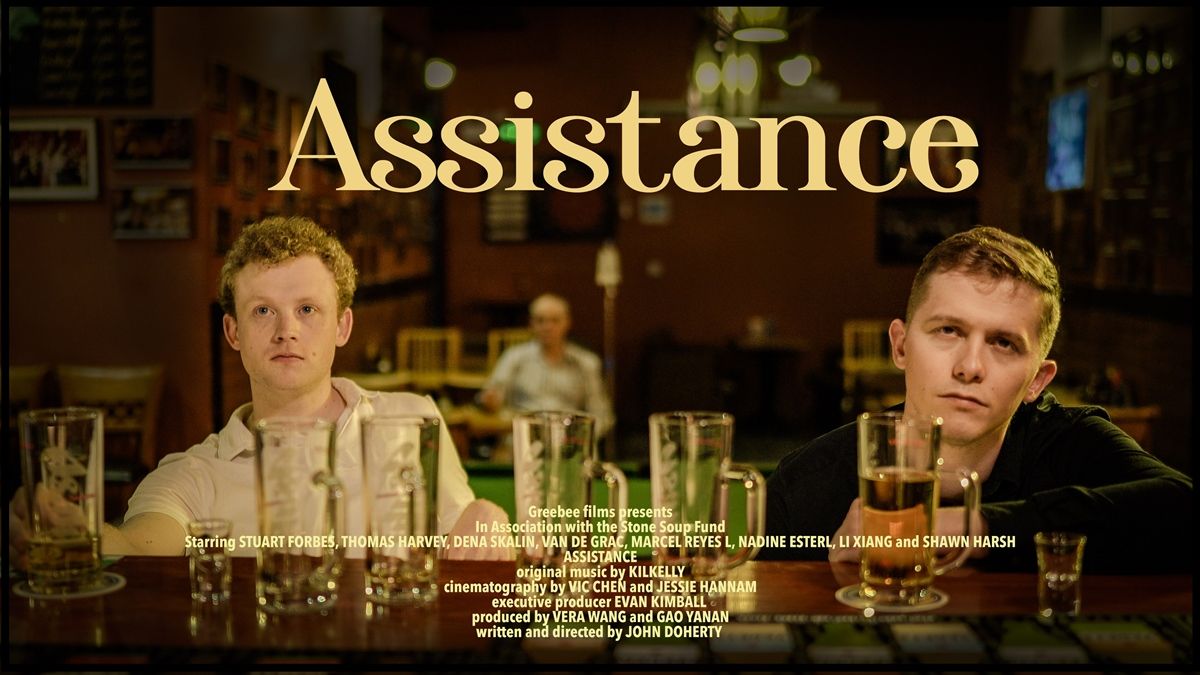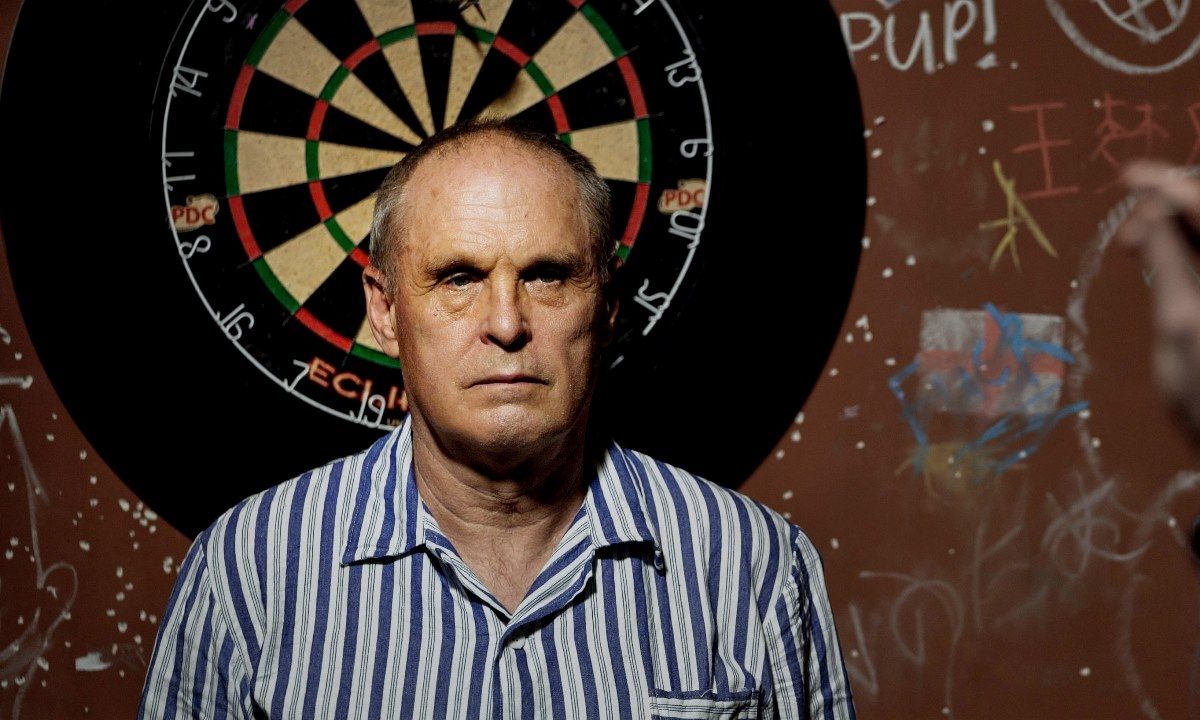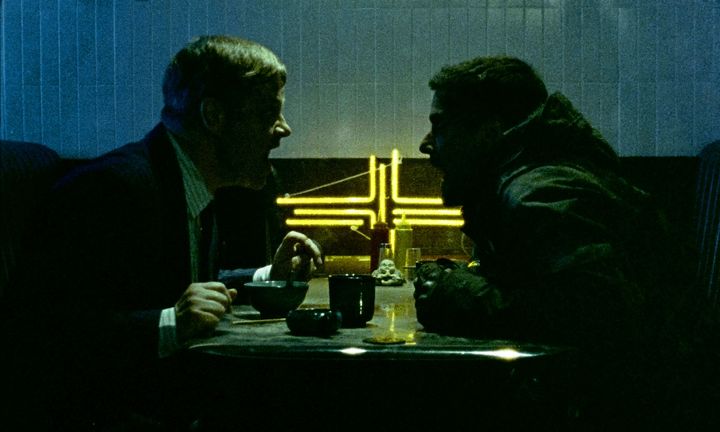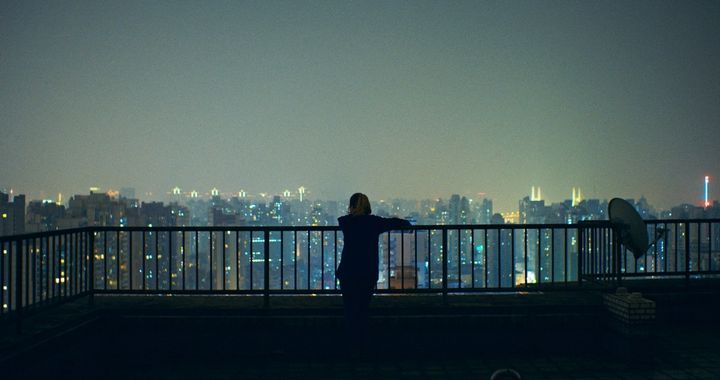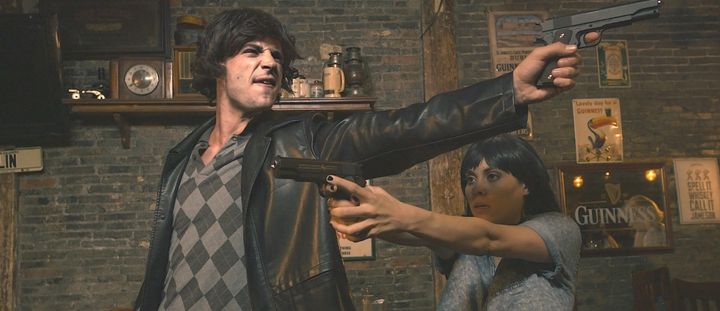Things get grim as two brothers conspire take the life of their elderly father in the upcoming dark comedy, Assistance. We talk with writer-director John Doherty about embracing the macabre, jumping in at the deep end and the making of his debut short.
Part family drama, part dark comedy, Assistance tells the tale of two brothers (played by Stuart Forbes and John Doherty) who make a deal with their dentist (Shawn Harsh) to kill their bed-ridden and comatose father (Thomas Harvey).
Inspired by a mix of English sitcom humor, Coen brothers’ films and the short stories of Flannery O’Connor, Doherty (who also wrote and directed the film) uses his debut short to pose some big questions surrounding end-of-life, as the siblings struggle to come to terms with their father’s illness and set in motion a course of action from which there is no turning back.
“O’Connor, in particular, had a great deal to say on the conflict between emotions and rationality – which is the main theme of Assistance,” Doherty says. “I think people are nowhere near as rational as they would like to believe, and much like in a Flannery O’Connor story, our characters are punished at the end of the film for their hubris.”
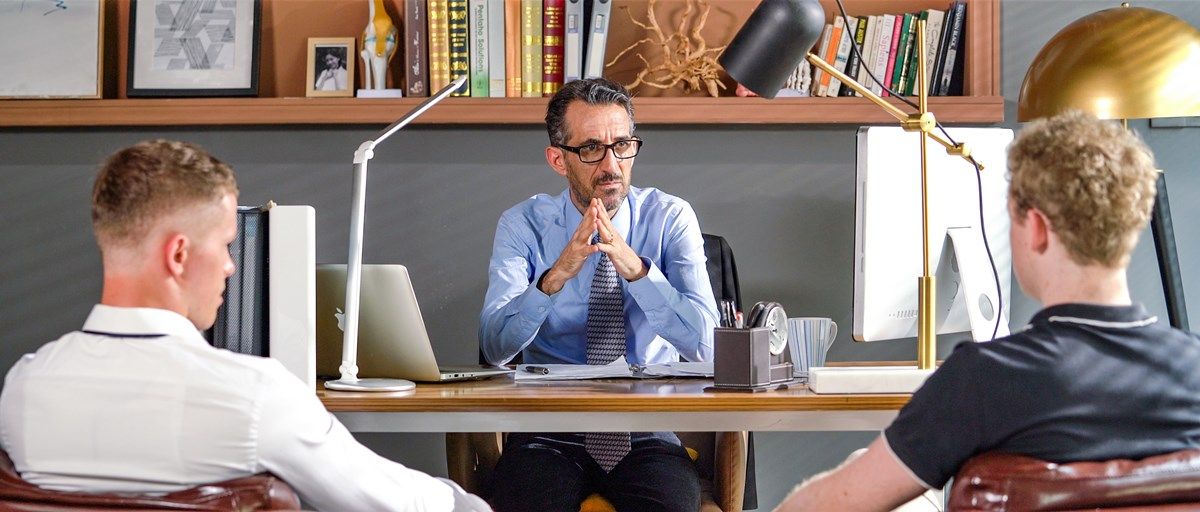
Setting out to compose a satisfying narrative in just 10-12 minutes of screen time, Doherty says he looked to the set up-body-punch line structure of a well-told joke for inspiration, while keeping an open attitude towards changes throughout the process.
“The old adage is ‘writing is rewriting’ and right up until we started shooting, the script was open for revision,” he says. “We also had some great actors who brought their own interpretation to the script and really lifted it off the page, so I was happy to let them improvise and feel their own way into the story.”
"Right up until we started shooting, the script was open for revision."
Shot in Foshan and Shenzhen in southern China, Doherty pieced together the cast and crew by reaching out via WeChat groups and friend recommendations to a number of industry veterans in the Guangdong filmmaking community. Surrounding himself with more experienced collaborators, he says, paid off in the form of the added advice and support he received throughout the project.
“Especially when the cast is that talented and experienced, my role as director is to just get out of their way,” he says. “A lot of my favorite moments from the film were actually improvised on set.”
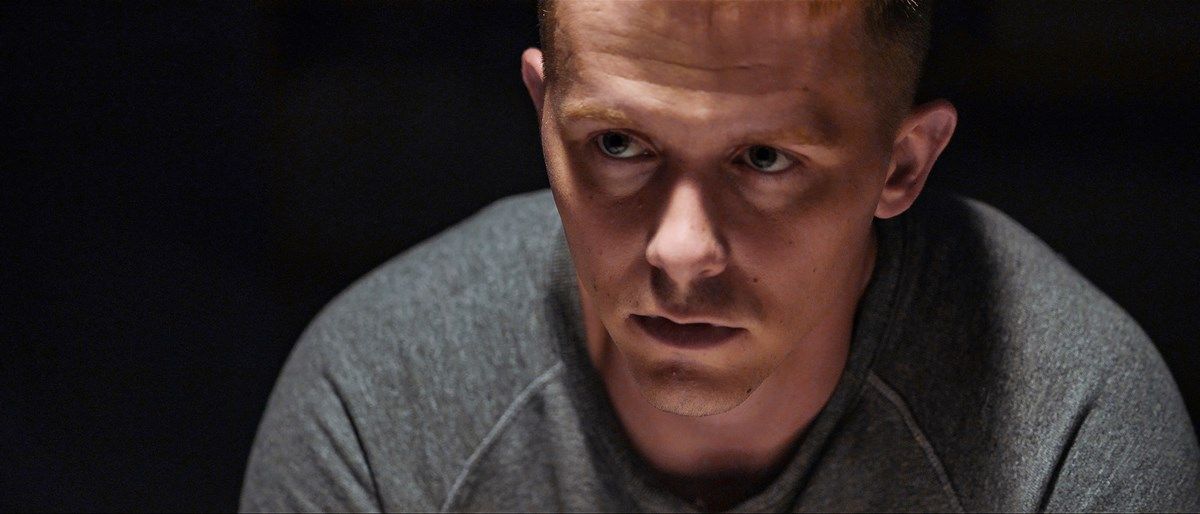
Another stand-out aspect of Assistance is the film’s soundtrack, produced by Irish singer-songwriter Kilkelly, whose macabre musical storytelling Doherty points out was perfect for the tone of the project.
“Music is a big part of the narrative. Kilkelly is an old friend living in Berlin who is part of the thriving ‘dark folk’ scene there,” Doherty says. “Two original songs from his debut album feature heavily in the film.”
"Filmmaking is a very expensive hobby."
Assistance was also the first project to be awarded backing from the Stone Soup Fund – a Beijing-based crowd-funding competition launched in 2019 for indie filmmakers to get their projects made. In total, the film received 15,000 RMB (roughly $2,100 USD) from the SSF (which Doherty then matched himself), most of which went to covering location costs and equipment rentals.
“The grant from the Stone Soup Fund really allowed us far more options,” Doherty says. “We could choose a more expensive lighting set up than we may have had, pay a professional to do up the title animation and just had more breathing space in general. Filmmaking is a very expensive hobby.”
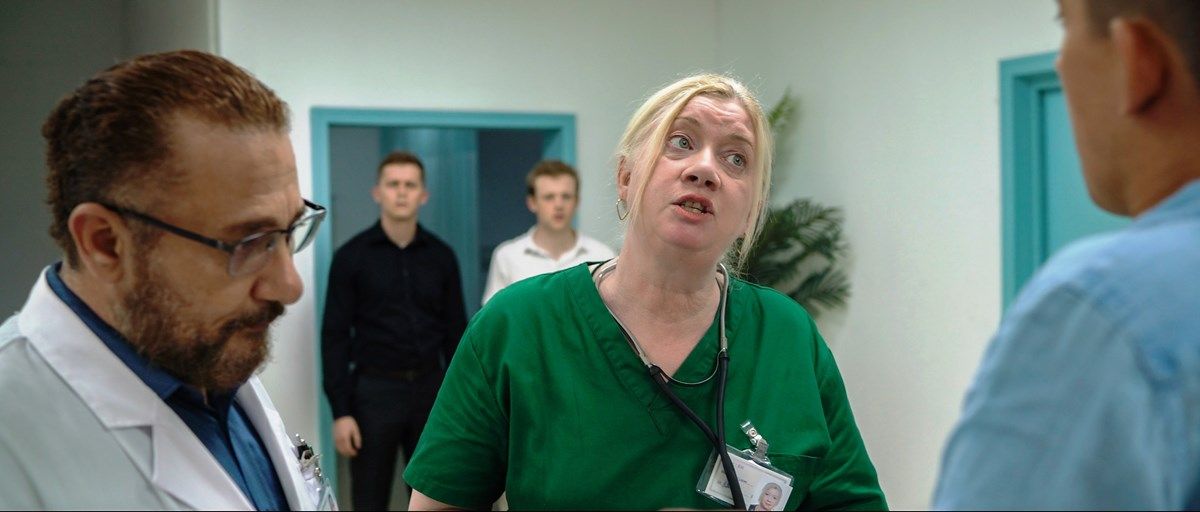
By Doherty’s account, it took five very long and sometimes stressful days to shoot the film, followed by more than four months of editing, mastering and mixing – all of which demanded an enormous amount of perseverance.
“Micro-budget filmmaking requires a lot of stamina. Most of the cast were donating their time for free and we had to work around work schedules and time conflicts,” he recalls. “It’s not work for the fainthearted. Things generally go wrong and you just have to keep moving forward.”
"If you really want to make a film, don’t go on holiday."
Like many aspiring filmmakers, Doherty says he has his future sights on directing a feature. In the short run, however, he explains that he plans to continue making shorts until he develops the confidence to attempt a larger scale production.
“There is great value in ‘jumping in at the deep end’ and learning by doing,” he says. “Also, don’t be afraid to spend money. For the cost of a week’s vacation you can produce a short film with high production value. If you really want to make a film, don’t go on holiday.”
Ultimately, Doherty concludes, the experience of working on Assistance taught him some important lessons as a filmmaker and he hopes others will be inspired to tackle similar projects. “Just get it finished,” he says. “Having a final product is an achievement in itself.”
